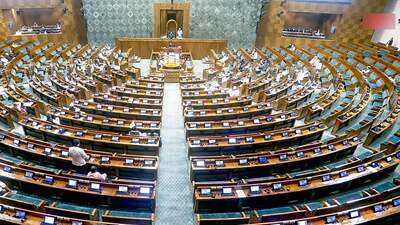
The RSS chief, Mohan Bhagwat’s declaration that the consecration of the Ram Temple at Ayodhya was the true Day of Independence for India must be juxtaposed against the statement of the Allahabad High Court judge, Justice Shekhar Yadav, who said the wishes of the majority are the real law of the land and that Muslims should reform their law. There is nothing new in what the RSS chief has said because ever since its inception in 1925, successive sarsangchalaks like Dr. Keshav Baliram Hedgewar and M.S. Golwalkar have espoused the line that Hinduism is synonymous with nationalism. This line directly flouts the spirit of the Constitution. Hindutva is a movement within Hinduism, just as Buddhism and Jainism, which originated as reforms. A High Court or Supreme Court judge cannot equate religious morality with constitutional morality, which are mutually antithetical. Compare Bhagwat’s utterance with the judgement of the Karnataka High Court judge, Justice M. Nagaprasanna, who, in September 2024, acquitted two men accused of shouting “Jai Shree Ram” inside a mosque after trespassing into it and also threatening that Muslims would not be allowed to live in peace. The Supreme Court is examining his judgement. “What is wrong if a Hindu shouts Jai Shree Ram (inside a mosque)?” is what the judge has allegedly asked.
If we accept that the Modi government has followed a policy of pick-and-choose from those recommended by the Supreme Court collegium for elevation as high court judges, a distinct pattern emerges. The former CJI, Dhananjaya Chandrachud, had objected to the elevation of Justice Shekhar Yadav of the Allahabad High Court for having links with the RSS and the VHP. Justice Yadav has stayed away from attending another ceremony at Ayodhya as a chief guest because it is a court working day.
Like Justice Shekhar Yadav, a woman lawyer from the Madras High Court, L. Victoria Gowri, who was accused of having RSS links and being rabidly anti-minority with public comments such as “If Muslims are green terror, Christians are white terror,” was speedily sworn in as a judge of the Madras High Court, even as her elevation was challenged in the Supreme Court. Now, consider the fact that roughly 40 high court and retired Supreme Court judges attended a VHP conclave in 2024, and that some years ago a sitting Supreme Court judge, Justice Arun Kumar Mishra, voiced his adulation for Prime Minister Narendra Modi, declaring him a visionary who thought globally but acted locally.
The U.P. chief minister, Yogi Adityanath, said, “Justice Shekhar Yadav was speaking the truth for which he was penalised.” Yogi Adityanath got it wrong. Neither Shekhar Yadav nor L. Victoria Gowri were penalised and will continue to decide cases in which those from the minority communities are accused, despite having demonstrably anti-minority views. There is nothing wrong with wannabe judges being members of a socio-political organisation like the RSS except that when a lawyer is elevated as a high court judge, he must uphold the Constitution, which supplants his religious beliefs.
The 50th CJI, Dhananjaya Chandrachud, set a bad example when he confessed he was inspired by God to write the contentious Ayodhya judgement, provoking senior advocate Dushyant Dave to quip the Ayodhya judgement was inspired by an extra-Constitutional authority. CJI Chandrachud also pronounced that the Places of Worship (Special Provisions) Act, 1991, did not prohibit ascertaining the old character of a place of worship, thereby thwarting the very aim of this secular law. The 43rd CJI, T.S. Thakur, wept before Narendra Modi when he declared the government was not clearing the files of those lawyers cleared by the collegium for judgeship. Examine Vice President Jagdeep Dhankar’s alleged statement that India’s Constitution was written by the colonisers and is a “lifeless machine.” Compare his opinion that the basic structure doctrine usurped parliamentary sovereignty with the utterances of the then law minister, Kiren Rijuju, that the government would not remain a mute spectator during the selection of judges. We must accept the Modi government has the final say in who will be sworn in as a judge. No wonder some of these judges espouse the government doctrine.
Returning to Mohan Bhagwat’s statement that the consecration of the Ram Temple at Ayodhya was truly India’s Independence Day, it is for us to realise that religion has become synonymous with nationality. Muslims and Christians do not fulfil the twin Hindutva pillars of pitrabhumi and punyabhumi which were devised for Hindus, justifying the rising attacks on these minorities and an alleged reluctance to make them judges because of the distorted notion that they do not worship the Bharat Mata.
There have been Supreme Court judges, like Justice Kurien Joseph, who refused to attend a conclave of chief ministers and judges because it coincided with Easter, which he celebrated by attending Mass in his native Kerala. But such iconoclast judges are rare. Supreme Court judges, from the minority communities, are conformist, which is why the Modi government clears their files.
Finally, we have Justice Vedavyasachar Srishananda of the Karnataka High Court who had referred to a Muslim-majority area of Bangalore as “Pakistan” last year. He spoke at ‘Vishwamitra’, a two-day Brahmin convention held on January 18th and 19th in Bangalore. His equally controversial brother judge from the Karnataka High Court, Justice Krishna Dixit, has said the term “Brahmin should not be an indication of caste but varna…… Of the seven members of the drafting committee, three were Brahmins. Allddi Krishnaswamy Iyer, Gopalaswami Ayyangar and B.N.Rau,” said Justice Dixit. Justice Dixit declared that “Dr. B.R.Ambedkar once revealed at the Bhandarkar Institute that if B.N. Rau had not readied the draft of the Constitution, it would have taken another 25 years (to be framed).” The judge indirectly hinted that were it not for Brahmins like B.N. Rau, we would not have had a Constitution today. Such judges will make Dr. Ambedkar turn in his grave.
Olav Albuquerque holds a Ph.D in law and is a senior journalist-cum-advocate of the Bombay High Court.